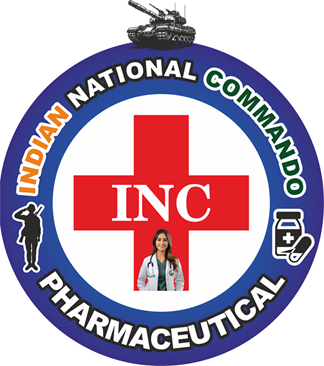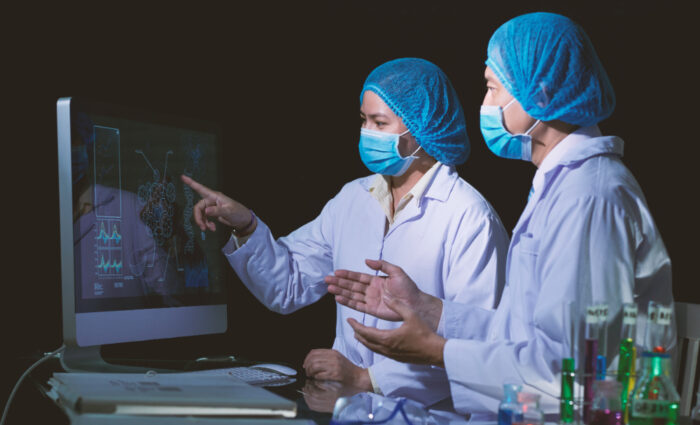The world of medicine is undergoing a remarkable transformation, driven by groundbreaking technologies and scientific advancements. From personalized treatments to AI-powered diagnostics, the future of healthcare promises to be more efficient, accessible, and precise than ever before.
Let’s explore the innovations that are reshaping the landscape of modern medicine:
1. Personalized Medicine: Tailored Treatments for Individuals
Gone are the days of one-size-fits-all treatments. Personalized medicine, also known as precision medicine, uses genetic information and biomarkers to develop customized therapies based on an individual’s unique genetic makeup.
- Impact:
- Improved treatment outcomes.
- Reduced side effects.
- Targeted therapies for diseases like cancer.
Example: Gene editing tools like CRISPR allow scientists to correct genetic mutations, opening doors to potential cures for inherited diseases.
2. Artificial Intelligence (AI) and Machine Learning
AI is revolutionizing healthcare by enabling faster, more accurate diagnoses and treatment plans. Machine learning algorithms analyze medical data to identify patterns that might be missed by the human eye.
- Key Applications:
- Early detection of diseases like cancer through image analysis.
- Virtual health assistants for patient monitoring.
- Predictive analytics for identifying high-risk patients.
Example: AI tools like IBM Watson Health assist doctors in diagnosing complex diseases and recommending treatment plans.
3. Telemedicine and Remote Care
Telemedicine has transformed the way patients access healthcare, especially in rural and underserved areas. With video consultations, mobile health apps, and wearable devices, patients can now receive care from the comfort of their homes.
- Benefits:
- Reduced hospital visits.
- Improved patient monitoring through wearable devices.
- Faster access to medical expertise.
Example: Smartwatches and fitness trackers monitor heart rates, oxygen levels, and sleep patterns, providing real-time data to healthcare providers.
4. Regenerative Medicine: Healing from Within
Regenerative medicine focuses on repairing or replacing damaged tissues and organs using stem cells and bioengineered tissues. This field has the potential to treat conditions that were once thought incurable.
- Applications:
- Stem cell therapy for spinal cord injuries and heart diseases.
- 3D-printed organs for transplants.
- Tissue engineering to repair skin, cartilage, and muscles.
Example: Scientists are already using 3D bioprinting to create artificial skin and organs, reducing dependence on donor transplants.
5. Robotics in Surgery and Rehabilitation
Robotics is enhancing surgical precision, reducing recovery times, and improving patient outcomes. Robot-assisted surgeries are minimally invasive, enabling faster healing and fewer complications.
- Key Technologies:
- Da Vinci Surgical System for complex procedures.
- Robotic prosthetics that mimic natural movement.
- Exoskeletons for rehabilitation after injuries.
Example: Robotic arms controlled by AI are helping surgeons perform delicate operations with extreme accuracy.
6. Nanotechnology in Medicine
Nanotechnology is pushing the boundaries of medicine with tiny devices that can deliver drugs, repair tissues, or detect diseases at a cellular level.
- Breakthroughs:
- Nano-robots targeting cancer cells without affecting healthy tissues.
- Smart pills equipped with sensors to monitor drug absorption.
- Early detection of tumors through nanoparticles.
Example: Gold nanoparticles are being used in cancer detection and treatment, improving precision and effectiveness.
7. Immunotherapy: Fighting Diseases Naturally
Immunotherapy harnesses the body’s immune system to fight diseases like cancer and autoimmune disorders. It has emerged as one of the most promising approaches to treating life-threatening illnesses.
- Benefits:
- Long-lasting protection against diseases.
- Fewer side effects compared to chemotherapy.
- Boosts the body’s natural defense mechanisms.
Example: CAR-T cell therapy reprograms immune cells to recognize and attack cancer cells.
8. Digital Health Records and Blockchain Security
The adoption of electronic health records (EHRs) and blockchain technology ensures data security and seamless sharing of patient information among healthcare providers.
- Advantages:
- Faster access to patient history.
- Reduced medical errors.
- Improved privacy and security of medical data.
Example: Blockchain systems securely store patient data while enabling real-time updates accessible to authorized professionals.
The Road Ahead
As these innovations continue to evolve, the future of medicine is filled with promise and possibilities. At Inc Pharmaceutical, we are committed to staying at the forefront of this transformation—bringing you safe, affordable, and effective solutions backed by cutting-edge research and technology.
The future isn’t just about treating illnesses—it’s about preventing diseases, enhancing longevity, and improving the quality of life for all.
Stay tuned to our blog for more updates on healthcare innovations that inspire hope and save lives.





1 Comment
Wilimson
October 28, 2021Lorem ipsum dolor sit amet, consectetur adipisicing elit, sed do eiusmod tempor incididunt ut labore et dolore magna aliqua. Ut enim ad minim veniam, quis nostrud exercitation ullamco laboris nisi ut aliquip ex ea commodo consequat.